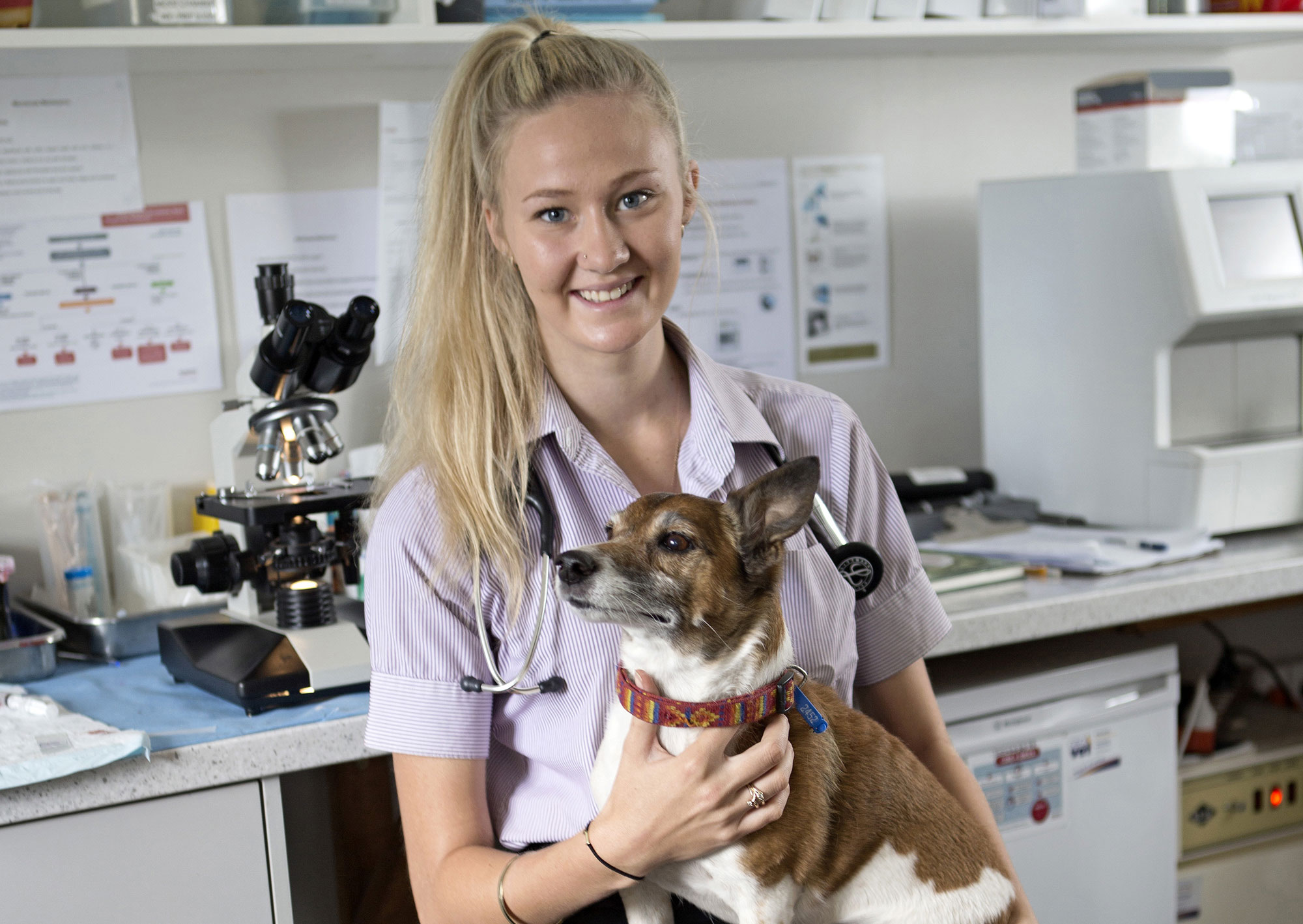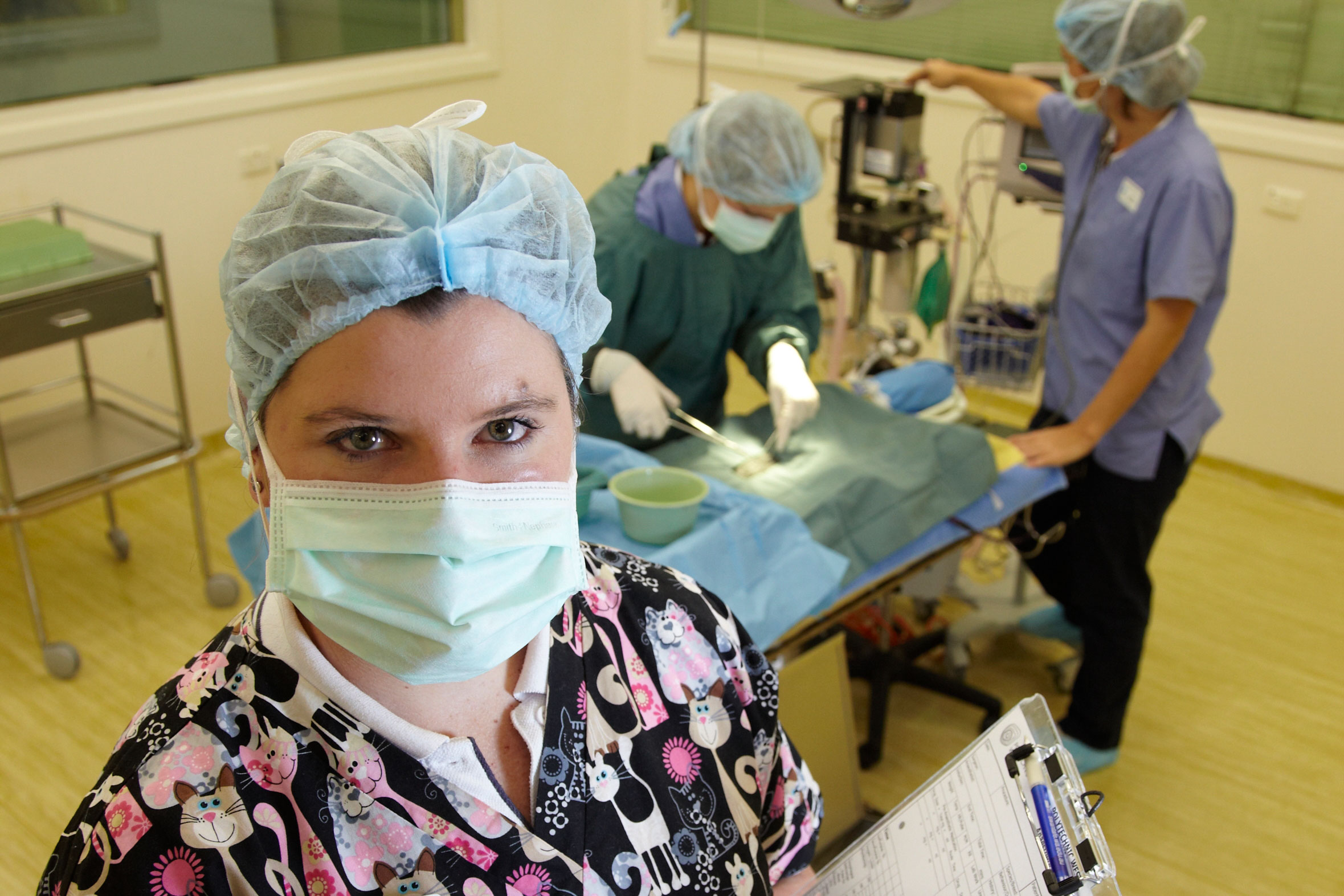A career in veterinary nursing will suit you if you want a practical, challenging but rewarding role, and are passionate about improving animal health and welfare.
Veterinary nurses are one of two key professional roles delivering medical care to animals, the other being veterinary surgeons (click here for information on studying to become a veterinary surgeon in Australia). Veterinary nurses are a valuable and essential part of the veterinary healthcare team.
Veterinary nursing is a rewarding and challenging career. The work is very hands on in nature, and will bring you into contact with many animals and their owners.
To work as a veterinary nurse in Australia, you need to complete a Certificate IV in Veterinary Nursing, which is the minimum qualification for a person who is to provide competent support to a Veterinary Practice. This is a national qualification recognised in all states of Australia.
At the moment, the course is only available for international students at TAFE International Western Australia. Click here for more information about this course.
Professional body
After studying a Certificate IV in Veterinary nursing you will be eligible to register for AVNAT - the national registration scheme for veterinary nurses and veterinary technicians involved in clinical, management or academic areas.
Practical training
During your studies, Veterinary Nursing students will be able to participate in practical training and work placements at veterinary clinics, so you will have both the practical experience and qualification to step straight into a career after college.
Further study
Once qualified, it is possible to study further towards Diplomas in Veterinary Nursing General Practice, Emergency and Critical Care or Surgery and Dentistry.
Working as a veterinary nurse
As a veterinary nurse, you'll need be able to:
- confidently handle and restrain animals
- provide nursing care to hospitalised patients, including patient monitoring and health checking, feeding, grooming and walking animals
- administer treatments including injections, tablets, drips and blood transfusions
- perform diagnostic tests, e.g. blood sampling, urine analysis and x-rays
- prepare animals for surgery and perform some minor procedures, e.g. suturing wounds and dental hygiene
- monitor anaesthesia
- assist veterinary surgeons with operations
- maintain the cleanliness and hygiene of the practice
- communicate with pet owners, gaining their trust and reassuring them about their animal's treatment
- educate pet owners on animal health, including vaccinations, worming, flea prevention and appropriate nutrition
- support student veterinary nurses undertaking placements
- work to a professional code of conduct.
Career opportunities
As well as being qualified to work as a veterinary nurse in a clinic, students who have studied this qualification might also choose to work in other roles including:
- Animal welfare worker
- Animal carer
- Veterinary surgical assistant
No day will ever be the same so you can be assured that you will never experience a dull day.


